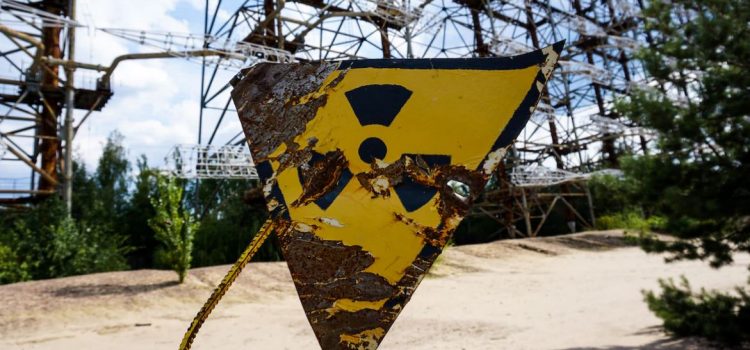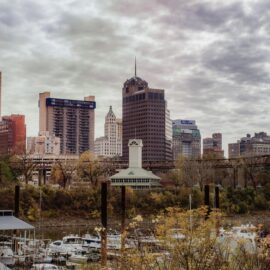
This is a free excerpt from one of Shortform’s Articles. We give you all the important information you need to know about current events and more.
Don't miss out on the whole story. Sign up for a free trial here .
Should the United States adopt nuclear energy as a power source? What are the top arguments against the use of nuclear energy?
Nuclear energy is getting new attention globally, but it remains a divisive topic in the U.S. Some people say it’s the best way to meet our energy needs without worsening global warming, while others argue that the risks are too high.
Below, we’ll take a look at the top cons of nuclear energy and how pro-nuclear activists downplay the dangers.
The Dangers of Nuclear Energy
Nuclear energy’s opponents argue that it’s simply too dangerous. They point to incidents like the Chernobyl disaster and the Fukushima Daiichi accident to make the point that every nuclear reactor is a potential weapon of mass destruction.
Furthermore, even if there were never another accident as bad as Chernobyl’s, nuclear energy produces radioactive waste that can take thousands of years to break down—that alone is enough of a risk to avoid nuclear energy. Many anti-nuclear activists prefer renewable energy sources such as wind and solar power to address energy needs and climate change.
Here are the cons of nuclear energy.
Anti-nuclear Argument 1: The Risk of Accidents Is Too Great
The main argument against nuclear power is the risk of another disaster like Chernobyl or Fukushima.
There are two versions of this argument:
- The chance of accidents is too high to risk. For example, ecologist John-Oliver Engler estimated that there’s a 49% chance we’ll see another Chernobyl-level disaster before 2050, and that’s just with the nuclear reactors currently in use. Others point out that nuclear plants would be ideal targets for attacks—terrorists or enemy combatants could intentionally cause nuclear disasters. Also, with the ongoing invasion of Ukraine, a third possibility has emerged: Enemy troops could use nuclear plants as cover, knowing that the defenders won’t dare to use artillery against it.
- The consequences of a serious nuclear accident are too great, no matter how low the chance is. This argument follows what statistician Nassim Nicholas Taleb would call Black Swan logic: No matter how unlikely something is, it’s bound to happen eventually. Therefore, we should proceed as if the worst-case scenario is guaranteed—and the worst-case scenario with a nuclear reactor is devastating.
Anti-nuclear Argument 2: Nuclear Reactors Create Hazardous Waste
Nuclear fission creates radioactive waste. Opponents of nuclear power argue that the logistics of containing that waste—and the consequences if we fail to do so—can be staggering.
The biggest point in favor of this argument is that nuclear waste can remain hazardous for a long time: thousands of years, in some cases. Naturally, the waste has to stay contained for as long as it’s dangerous to humans. Furthermore, if that containment fails, radioactive waste could leak into the soil or a nearby water source and expose large numbers of people to harmful radiation.
How Nuclear Advocates Downplay the Challenges
Nuclear energy advocates argue that nuclear energy isn’t the effective and efficient solution its supporters claim it is. They say that, with recent advances in clean energy, nuclear power is about five times more expensive than wind power, and it takes three to five times longer to get a nuclear plant up and running than a solar or wind farm (from planning steps to a fully operational plant). But is it really worth the risks?
Looking Forward
Where the U.S. goes from here is a complicated question, and it’s the subject of a great deal of debate. In 2018, nuclear power provided about a quarter of all clean energy worldwide—it was outperformed only by hydroelectric power, which provided about half.
However, the use of nuclear power is declining, even as energy consumption continues to rise. Nuclear proponents say that we must redouble our investments into nuclear power, while opponents say that we should phase it out in favor of renewables like wind, solar, and hydropower.
There is a third option: Some experts say that a comprehensive energy strategy must include both nuclear power and renewables, and suggest temporarily relying on nuclear power to both meet our needs and protect the environment while we continue to advance renewable technology. Then, once non-nuclear energy sources can reliably meet our energy needs, we would phase out nuclear in favor of those safer options.
Do you think nuclear energy is too dangerous, or do you think it’s worth the risks? Let us know in the comments.

Want to fast-track your learning? With Shortform, you’ll gain insights you won't find anywhere else .
Here's what you’ll get when you sign up for Shortform :
- Complicated ideas explained in simple and concise ways
- Smart analysis that connects what you’re reading to other key concepts
- Writing with zero fluff because we know how important your time is






